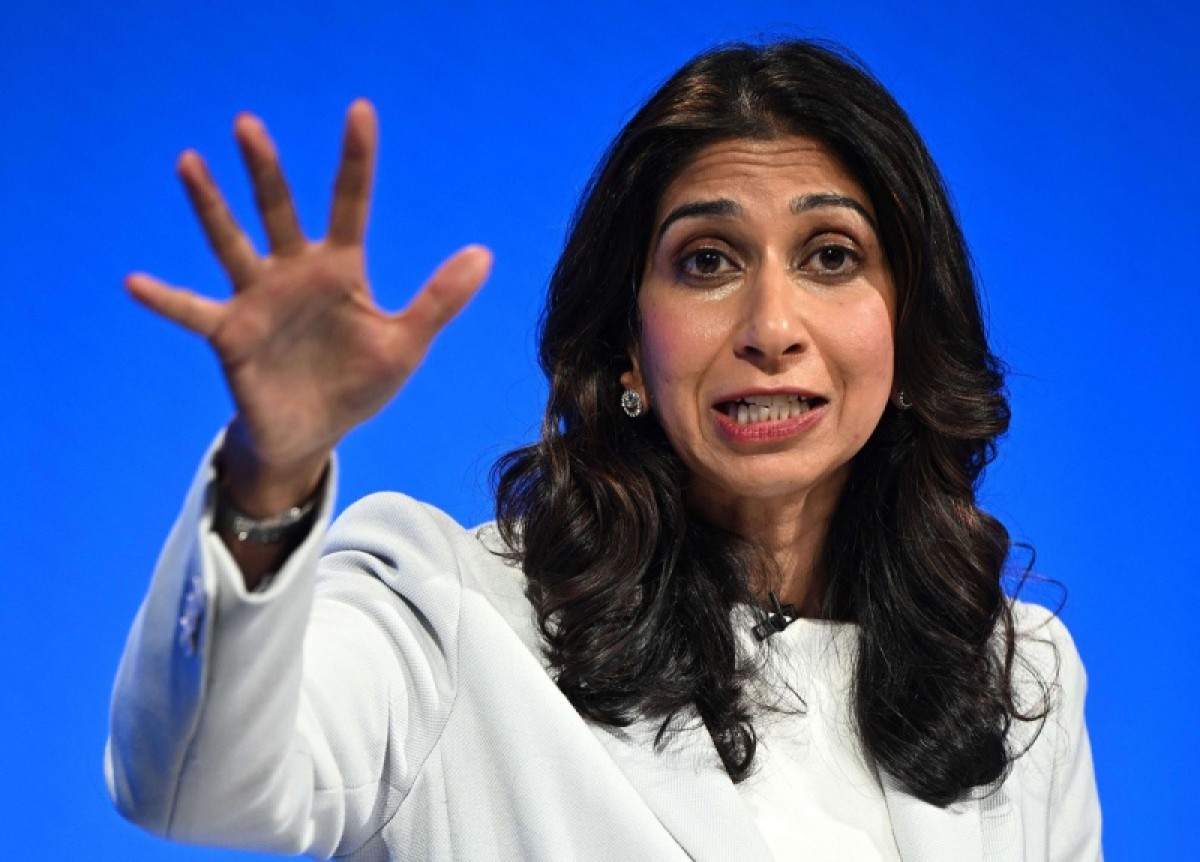Government reshuffles in Britain include the dismissal of the Home Secretary and the appointment of Cameron to the Foreign Office


British Prime Minister Rishi Sunak decided to dismiss Home Affairs Minister Suella Braverman as part of a broader cabinet reshuffle after she criticized the police's handling of a pro-Palestinian march, a government source confirmed.
The amendments included Foreign Secretary James Cleverly, as former Prime Minister James Cameron was appointed to the position, according to The Guardian newspaper.
The source said that he took the step amid pressure from criticism from opposition representatives and members of the ruling Conservative Party for ousting Braverman, and that he asked her to “leave the government,” which she accepted. A political editor at The Sun newspaper said Cleverley would replace her.
In conjunction with the British Prime Minister beginning to reshuffle his ministerial team, Cameron was seen walking in Downing Street, the seat of government, which raised speculation at the time that he would return to the government.
Last week, Braverman challenged Sunak by publishing an article in which she accused the police of “double standards” in their handling of the protests, which the opposition Labor Party said inflamed tensions at a pro-Palestinian demonstration on Saturday.
The dismissed minister considers the pro-Gaza marches to incite hatred and anti-Semitism. This was followed by the arrest of more than 140 people after right-wing extremist demonstrators clashed with the police, who tried to distance them from 300,000 pro-Palestinian demonstrators.
The dismissed British Foreign Secretary is a staunch supporter of Israel and a denouncer of pro-Palestinian organizations, while the British government took a less severe stance in support of Israel, while completely condemning the Hamas movement and its attack on October 7.
Sunak is expected to make a greater number of changes in his government, bringing in allies and dismissing some ministers who his Downing Street office says have not performed as well as he wanted in their ministries.
British lawmakers are seeking to tighten the noose around the Iranian Revolutionary Guard, accusing it of causing tension in the Middle East region against the backdrop of the Gaza war.
Members of the House of Lords called on the government to impose a ban on the Revolutionary Guard as a terrorist organization, saying this would be a step towards restoring stability in the Middle East.
The classification of the Iranian Revolutionary Guard as a terrorist group means that belonging to it, attending its meetings, or raising its slogan in public places will become a felony in Britain. The Iranian Revolutionary Guard is already subject to British sanctions.
More than 60 lawmakers from the House of Representatives and members of the House of Lords said in a letter to Prime Minister Rishi Sunak, “Given the ongoing conflicts in the Middle East, banning the Iranian Revolutionary Guard is now more urgent than ever.”
The letter, signed by prominent figures in the Conservative Party such as Iain Duncan Smith, David Davis and David Jones, said: “We call on our government to recognize the urgent need to designate the Iranian Revolutionary Guard as a terrorist organization and to move forward in doing so. Such a decision would constitute an important step towards peace, stability and justice. In the Middle East and beyond.
In January, a Foreign Office minister said that Britain was seriously considering classifying the Iranian Revolutionary Guard as a terrorist organization, but had not reached a final decision.